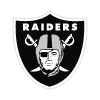2020 NFL rookie grades, AFC West: Chiefs, Chargers snag studs
Super Bowl LV’s in the books, bringing an unprecedented NFL season to a close. So, how did the new guys perform in this uniquely challenging 269-game slate? Gennaro Filice and Nick Shook are taking a division-by-division look at each team’s rookie class, providing grades and analysis on Year 1 production. Shook examines the AFC West below.
Round 1
- (No. 6) Justin Herbert, QB, 15 starts
- (23) Kenneth Murray, LB, 16 starts
Round 4
- (112) Joshua Kelley, RB, 14 games
Round 5
- (151) Joe Reed, WR, 11 games
Round 6
- (186) Alohi Gilman, S, 15 games/1 start
Round 7
- (220) K.J. Hill, WR, 15 games
The Chargers made their most important pick of perhaps the next decade with Herbert, who wasn’t just an excellent rookie — he was a fantastic quarterback overall. Murray needs to improve in coverage, but he wasn’t the only rookie linebacker victimized by the league’s increase in offensive output in 2020. He should make a relative leap in Year 2, his first under new head coach Brandon Staley. Kelley stepped up to help fill the void left by the injured Austin Ekeler, logging more than 500 scrimmage yards and scoring two touchdowns on 134 touches. Reed contributed mostly on special teams, while Hill saw more offensive snaps but at an inconsistent rate, totaling just 11 targets on the season. Gilman spent the majority of his rookie season on special teams, as well.
The Chargers get a B+ largely because of their selection of Herbert, a choice that already appears to be a franchise-altering one, while Murray and Kelley still need some time to prove they were worth their picks — especially Murray.
Round 1
- (No. 32) Clyde Edwards-Helaire, RB, 13 starts
Round 2
- (63) Willie Gay Jr., LB, 16 games/8 starts
Round 3
- (96) Lucas Niang, OT (opted out)
Round 4
- (138) L’Jarius Sneed, S, 9 games/6 starts
Round 5
- (177) Michael Danna, DE, 13 games/1 start
Round 7
- (237) BoPete Keyes, CB, 8 games/1 start
Notable undrafted free agents: Tommy Townsend, P, 16 games; Tershawn Wharton, DT, 16 games/1 start
Edwards-Helaire immediately grabbed the league’s attention with a dynamite debut. After posting 4.4 yards per carry in 2020, he is clearly Kansas City’s lead back of the future. Gay didn’t play a ton of snaps but was effective when he was on the field, recording 39 tackles (three for loss), one sack, three passes defensed and a Pro Football Focus grade of 68.1. Niang opted out of the 2020 season due to the ongoing COVID-19 pandemic. Sneed has been an absolute steal, filling a versatile defensive back role for the Chiefs. He landed on our list of unsung heroes in the AFC and finished as the No. 1 rookie DB in the NFL, according to Pro Football Focus, all despite missing a good chunk of the season due to a broken collarbone. Danna and Wharton helped provide the Chiefs with some unexpected depth on the defensive front, while Kansas City found its replacement for Dustin Colquitt in Townsend, a member of the Pro Football Writers of America All-Rookie Team. Keyes became the second Tulane defensive back in the past two drafts to be chosen in the seventh round and arrive at the NFL with a pre-existing injury (the other was 2019 seventh-rounder Donnie Lewis, who was selected by the Browns). Keyes started out on the reserve/NFI list but ended up returning in time to make special teams contributions before being called into action in Kansas City’s meaningless Week 17 loss to the Chargers.
Round 1
- (No. 15) Jerry Jeudy, WR, 16 games/14 starts
Round 2
- (46) K.J. Hamler, WR, 13 games/4 starts
Round 3
- (77) Michael Ojemudia, CB, 16 games/11 starts
- (83) Lloyd Cushenberry, C, 16 starts
- (95) McTelvin Agim, DT, 10 games
Round 4
- (118) Albert Okwuegbunam, TE, 4 games
Round 5
- (178) Justin Strnad, LB
Round 6
- (181) Netane Muti, OG, 4 games/1 starts
Round 7
- (252) Tyrie Cleveland, WR, 10 games
- (254) Derrek Tuszka, LB, 9 games
Notable undrafted free agents: Essang Bassey, DB, 12 games/3 starts; Jacob Bobenmoyer, LS, 16 games; Parnell Motley, CB, 2 games/1 start
The receiving corps John Elway envisioned when he drafted Jeudy didn’t stick together for very long because of Courtland Sutton’s season-ending ACL tear in September. Jeudy had a dozen frustrating drops and often seemed out of sync with QB Drew Lock, catching less than half of his 113 targets, but he also recorded some highlight grabs and ultimately had a good rookie year. Jeudy can work on catching the ball and get excited about Sutton coming back in 2021. The story is similar for Hamler, who saw half as many targets as Jeudy (56) and also had a problem with drops while still making some memorable plays. Ojemudia started quicker than most expected and ran into bumps in the road but showed some promise. Cushenberry started all 16 games, made the PFWA’s All-Rookie Team and earned praise from coach Vic Fangio for improving “inch by inch” in 2020. Denver will hope his play improves by greater margins in 2021. Agim showed flashes of potential and saw more playing time after injuries and COVID-19 forced Denver’s starters (Jurrell Casey, Shelby Harris) out of action, but he wasn’t quite as good as a rookie as they likely expected out of a third-round pick. Okwuegbunam was buried at the bottom of a deep tight end group headlined by Noah Fant, but he did manage to break 10 receptions and score a touchdown. Strnad missed the season due to wrist surgery. Muti shined in his one start, displaying quick feet and good power, and could end up being a steal. Cleveland is at the bottom of the depth chart and played most of his snaps on special teams. Tuszka appeared in nine games in a reserve role. Bassey went from undrafted afterthought to a promising piece in Denver’s secondary, appearing in 12 games over the course of the season and recording 23 tackles, two passes defensed and one interception before an injury ended his season prematurely. Denver found its long snapper in Bobenmoyer, while Motley bounced around a few teams before landing with the Broncos, getting significant playing time in the team’s final two weeks.
Round 1
- (No. 12) Henry Ruggs III, WR, 13 games/12 starts
- (19) Damon Arnette, CB, 9 games/7 starts
Round 3
- (80) Lynn Bowden, WR, 10 games/4 starts (w/ MIA)
- (81) Bryan Edwards, WR, 12 games/3 starts
- (100) Tanner Muse, S
Round 4
- (109) John Simpson, OG, 7 games
- (139) Amik Robertson, CB, 8 games/2 starts
Ruggs didn’t put up the numbers one would expect from the 12th overall pick, but he still showed plenty of promise. Raiders general manager Mike Mayock said recently Ruggs’ athleticism is visible, but he needs to work on his ability to get in and out of breaks and his strength in Year 2. That’s true; we knew Ruggs would be able to use his athleticism, but he can’t rely solely on it at the highest level of football. The jury is still out on Arnette, whose selection was a head-scratcher at the time, because he dealt with multiple health issues (broken hand, concussions, COVID-19). The Raiders gave up on Bowden extremely quickly, shipping him to Miami before the start of the season. Edwards has the physical tools to make a difference and seems as if he just needs more time to grow. Muse’s entire rookie season was wiped out by a foot issue that required toe surgery. Simpson was supposed to get a season to develop, but he ended up making two starts because of Richie Incognito‘s season-ending injury, getting valuable game reps in his first season before ceding the role to the more experienced Denzelle Good. Robertson played an equal amount of defense and special teams, recording four tackles in 2020.
Follow Nick Shook on Twitter.
Source: Read Full Article




